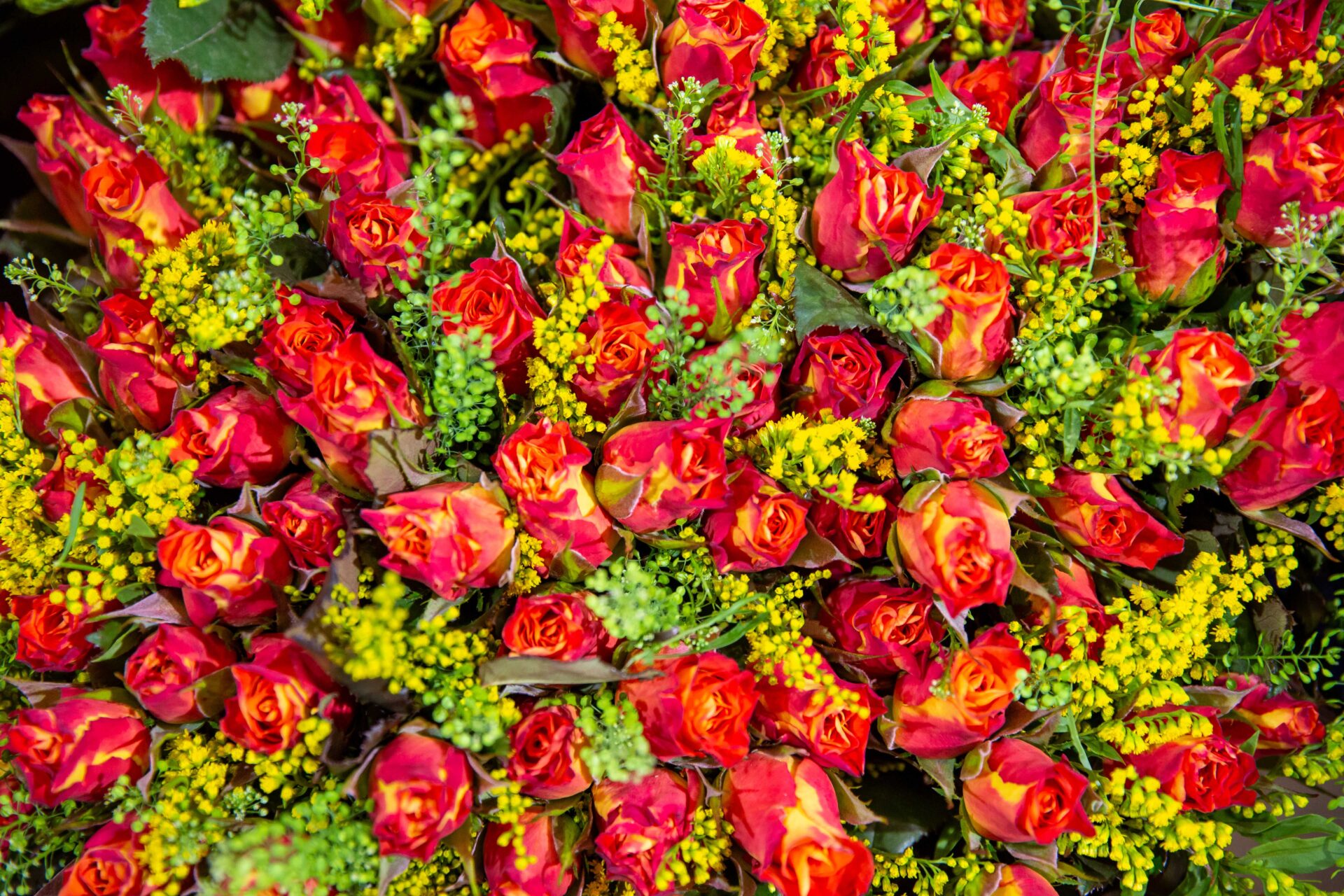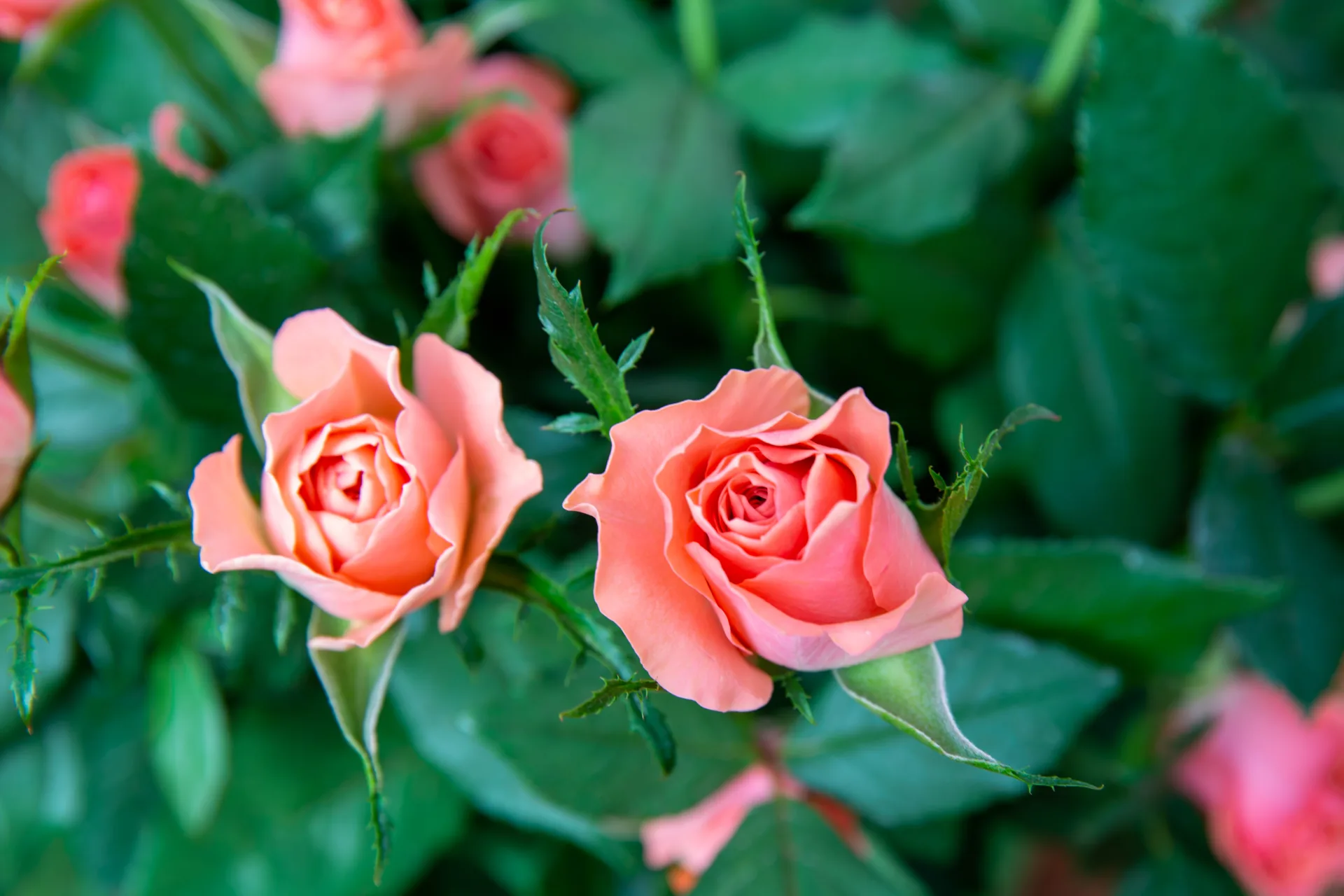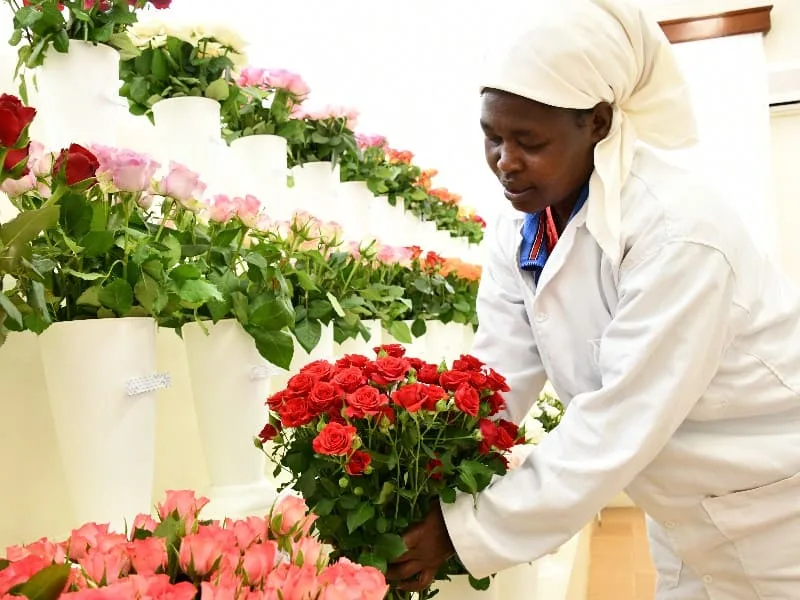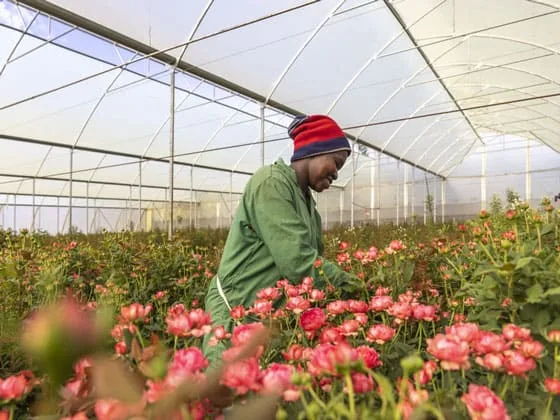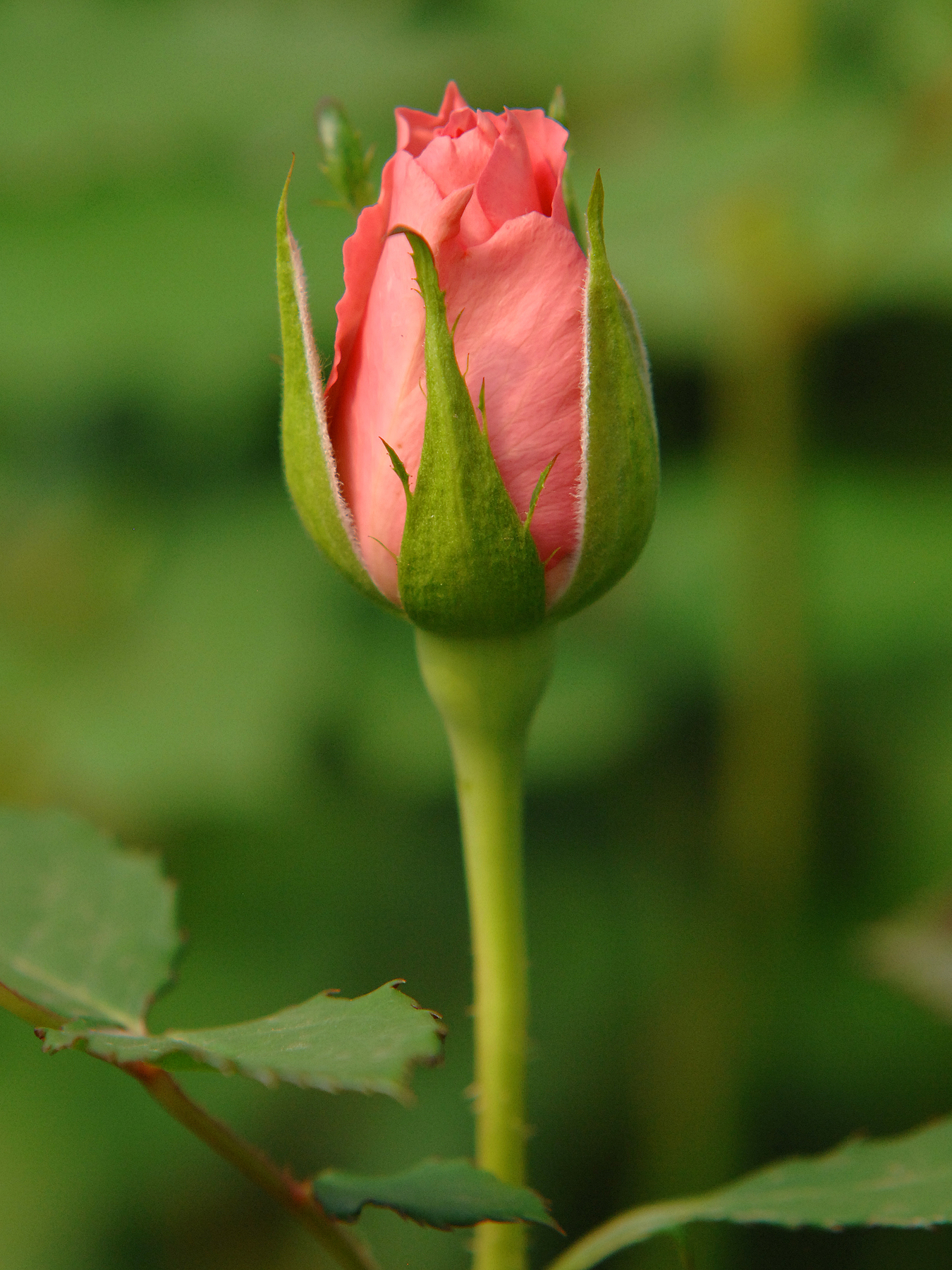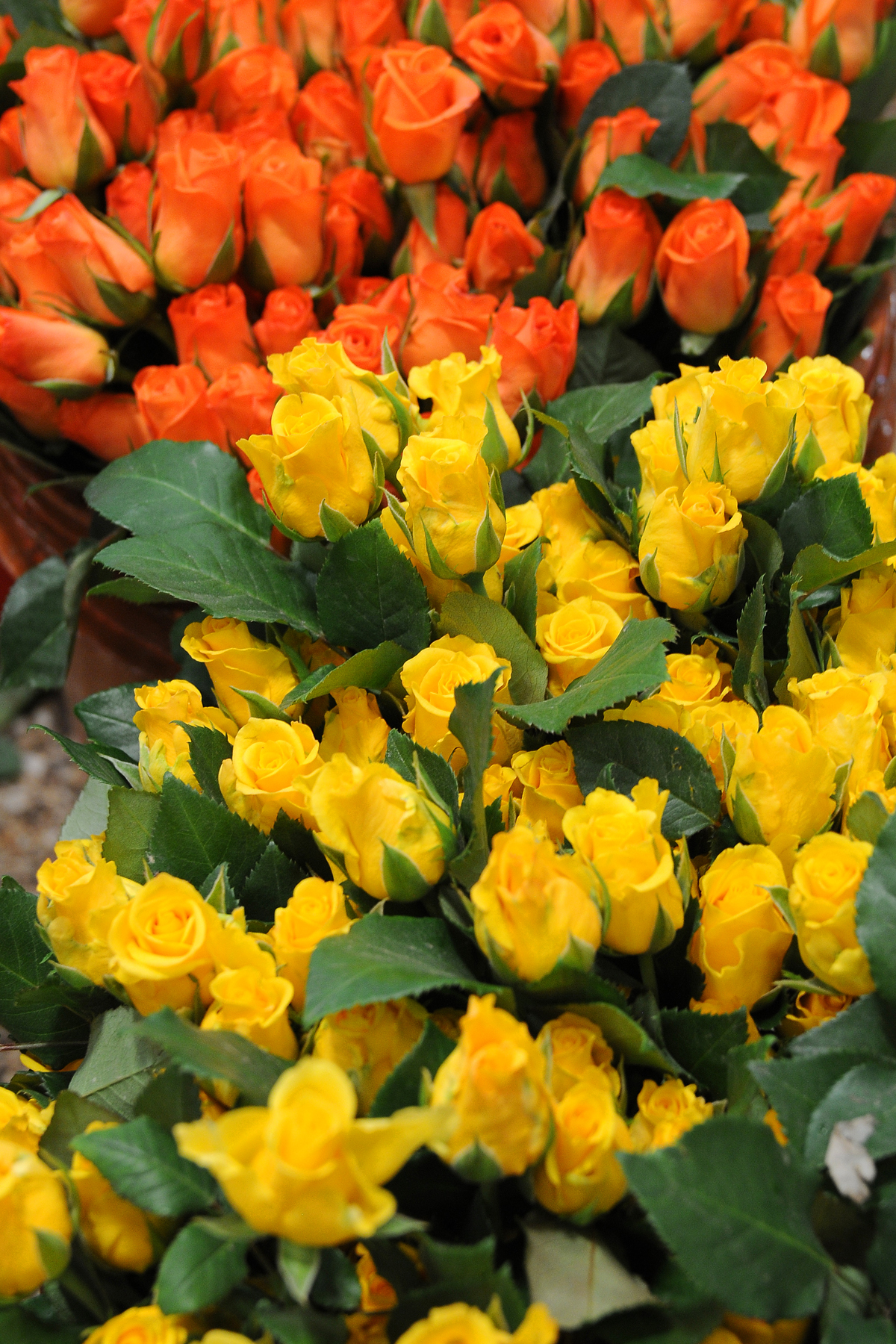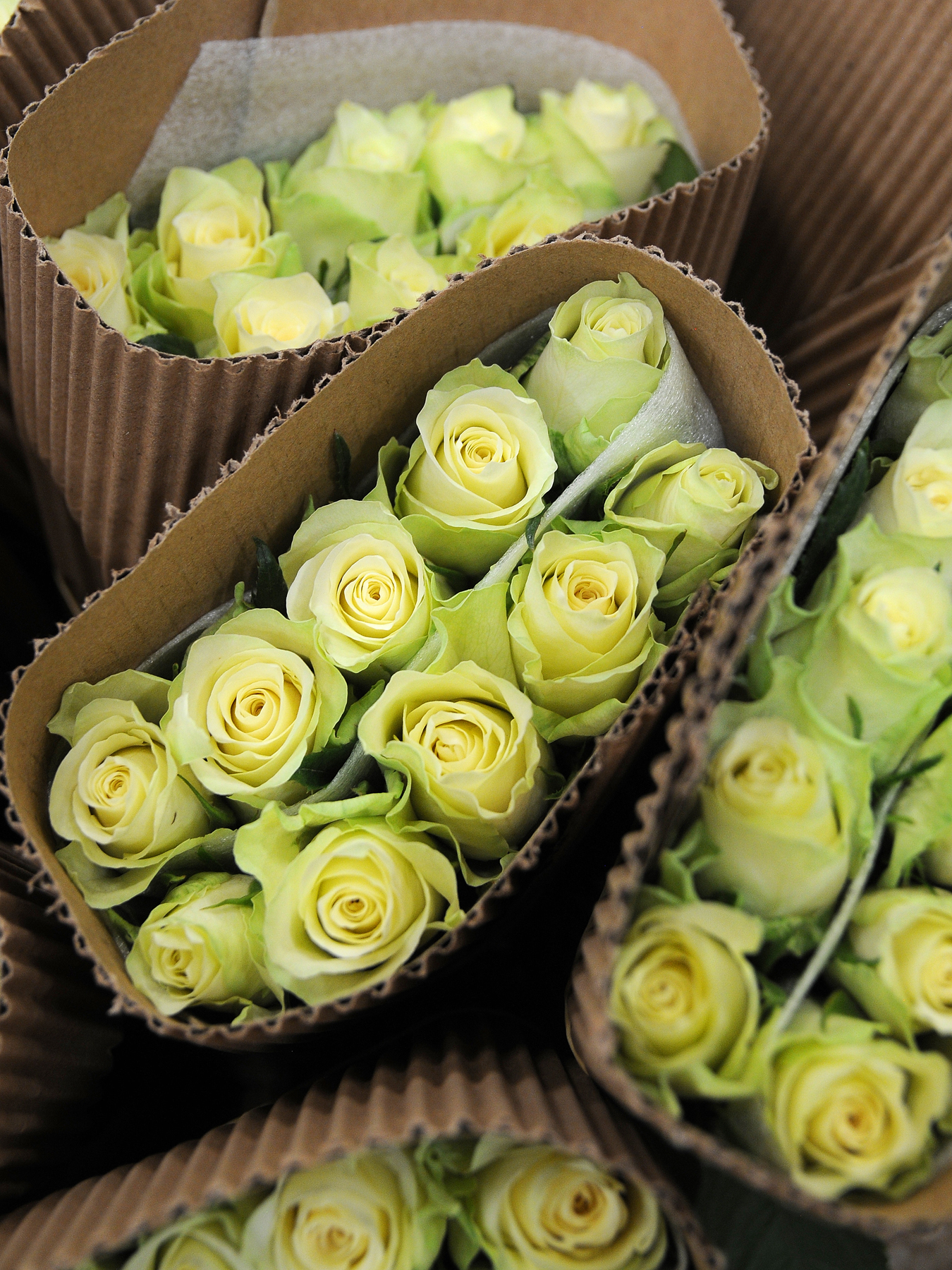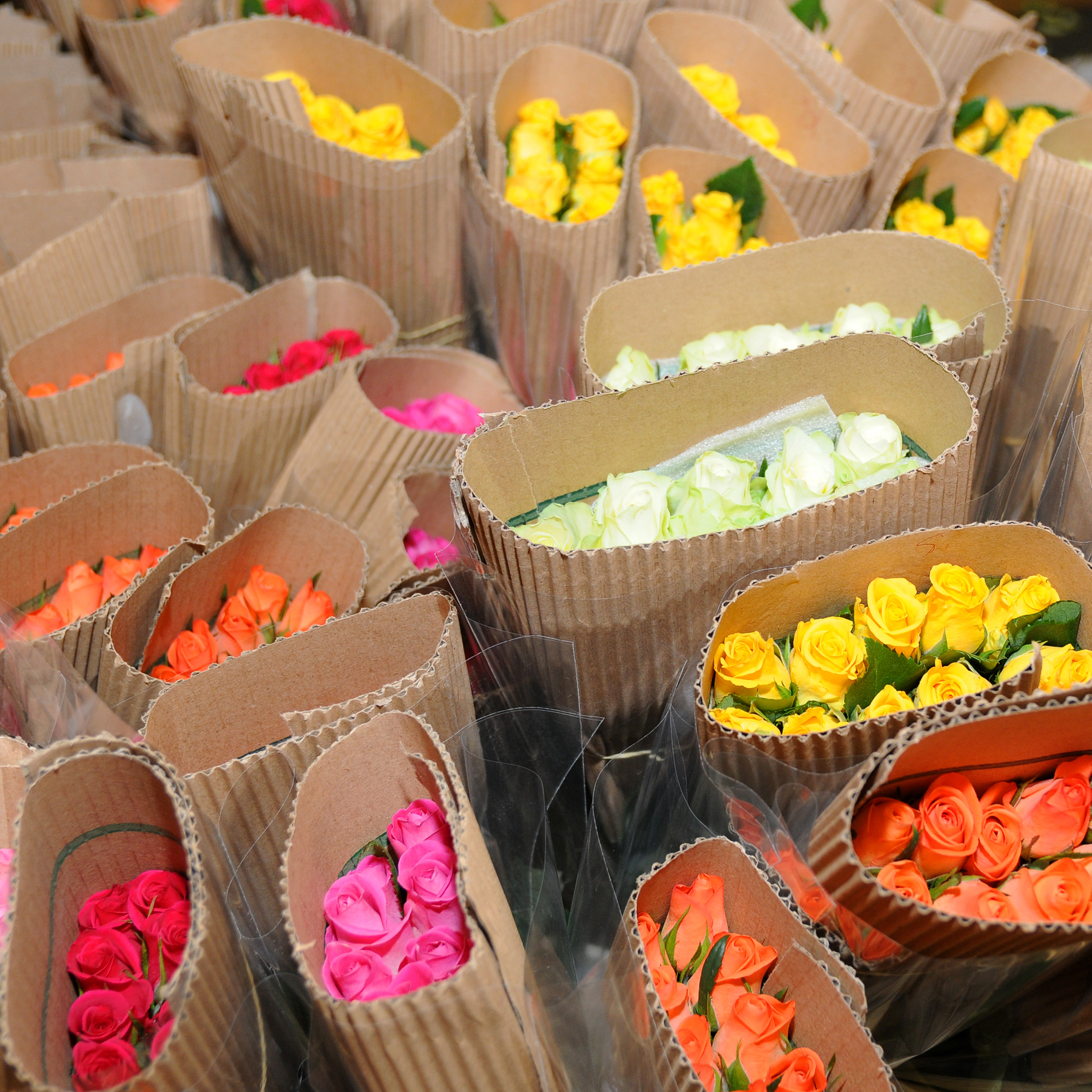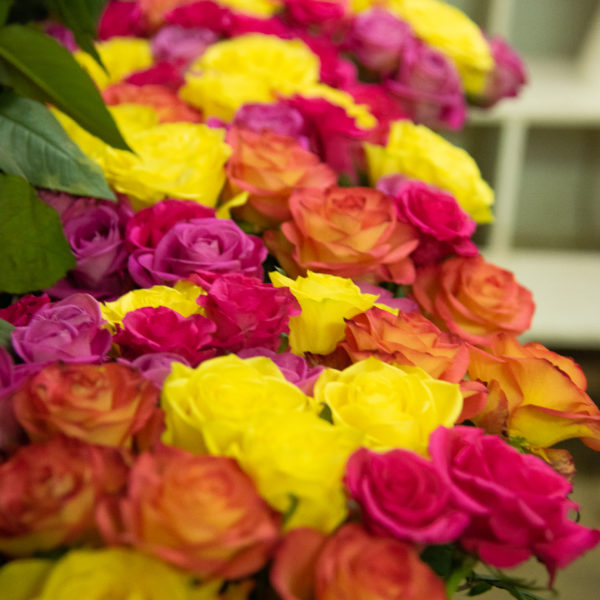The Flower Hub talks to Calvine Emadau of Karen Roses
Karen Roses, one of The Flower Hub’s global partners, is known worldwide for its premium roses, and an unwavering commitment to sustainability. Home to innovative solar power systems, community-driven CSR projects, and over 100 rose varieties, the farm delivers stunning blooms to global markets, whilst nurturing both people and planet.
We sat down with our valued partner and got to learn more about the farm, the people behind the farm, and what goes on there!
When was Karen Roses set up, and what flower varieties do you grow?
Karen Roses was set up in 1989. We grow Roses (42 Varieties), premium spray roses (60 Varieties), Gypsophila Xlence®, Lepidium Green Dragon®, Hard Ruscus, Eryngium, and other summer flowers, which also contribute to our bouquet making process.
At The Flower Hub, we understand how important variety is to florists and retailers alike. Our partner farm, Karen Roses’, wide selection ensures a steady supply of stems that cater to changing consumer trends – particularly the rising demand for mixed bouquets both in the UK, and across Europe. That’s why we are proud to be partnered with Karen Roses, an innovative Kenyan farm utilising solar power in floriculture. Together, we’re committed to reducing our carbon footprint, promoting responsible flower sourcing, and delivering stunning, sustainable blooms.
How many staff members work at Karen Roses, and what facilities support them?
We have 1,300 workers (of which 60% are female and 40% male), we provide a heavily subsidised Canteen, a Clinic with a Clinical Officer (and a Doctor from the sub-county hospital available on request).
Our workers are also key beneficiaries of the JB School & Creche, as a number of workers’ children attend.
What are your accreditations?
We have a number of esteemed accreditations, including the Global GAP (Good Agricultural Practice), Fairtrade, MPS A+, OHAS (Ornamental Horticulture Assurance Scheme). Finally, the farm is also Certified Carbon Neutral.
Does Karen Roses sell directly or through auctions, and what are your main markets?
We are a direct-focused farm (99%) with some of our Roses and Spray Roses going to the auction (circa 1%). The UK is our main market with 40% share. This core focus on our direct supply allows Karen Roses to provide customers with fresher flowers and reliable quality – a huge advantage for retailers who crave consistency week in, week out.
How much of the farm is under production?
90 HA of the land is under production at any one time. The remaining area is under tree cover, which we add to each rainy season with our tree nursery and tree planting program, which is a huge part of our environmental and sustainability strategy.
What environmental projects and sustainability aspects are you implementing?
Water Recycling Strategies
The water which runs off from our Hydroponic production is captured and reused. 95% of our greenhouses are set up to collect rainwater, and we also have a groundwater collection system. Rainwater is captured and stored in our reservoirs, which also helps reduce runoff and erosion further downstream.
We have also constructed a wetland which takes the water from our Packhouse and fully cleans it so that it is safe to release into the environment.
Composting Creation
We are in the process of implementing a new composting program to include Vermi composting and row composting that will recycle all of our green waste and return it to the Greenhouses to build the soil. Both projects should be up and running by October.
Solar Power Strategies
We have installed a 250KwH solar array, which provides electricity for central pack house and facilities, and we are further installing solar to help power our Farm Units
Tree Nursery Implementation
Prior to the rains each year, we go to the forests on our land and collect seeds of native plants and trees and grow them in our Tree Nursery. Each of our unit managers is required to set aside space for tree planting, and they place an order to the nursery, which is then planted out during the rainy season. We also give trees to our workers and the local community.
Integrated Pest Management (IPM)
For our integral IPM strategies, we work closely with RealIPM and Dudutech.
Is Karen Roses Involved in any CSR projects/initiatives?
Karen Roses JB School and Creche, El Dama Ravine – We donated the land for this project, and all major infrastructure projects continue to be funded by Karen Roses and partners, including Fairtrade and Waitrose Foundation. The school and creche are fully run by JB. The total population of the school is circa 30,000 including the Creche.
Other Projects:
Alongside our partners in Fairtrade and Waitrose Foundation, we have funded and contributed to an extensive range of projects in our local community including a maternity wing at the sub-county hospital (which supports ladies from 3 Counties, Baringo, Uasin Guishu and Nakuru due to the high quality facilities), construction of classrooms in several local schools, clean water accessibility projects, construction of libraries, provision of education bursaries to those in need, and we have on farm a feeding program for all our workers which is subsidised by the company to 75%.
We are also in the process of (having seen the impact through COVID on the local economy) creating a circular economy by encouraging and providing resources (including agronomy expertise and free seeds) to our local community to grow food crops and sell back to our company for use at the canteen to feed workers. Subsistence farming is subject to extreme variation in demand and farmgate price. We aim to be able to provide a consistent demand and a consistent farm gate price to support our local community while nutritionally benefitting our workforce.
Bee Project:
We have 50 Beehives on the farm where we harvest honey 3x per year. We have recently supported a community project by donating 100 beehives and providing education on bee farming to empower with knowledge and provide income to local people.
We are proud to partner with a farm that invests so much in its community – from supporting education and healthcare, to creating new income streams through sustainable farming and beekeeping. For our customers, this means every purchase has a positive local impact.
FAQs:
1) Why should retailers choose direct supply from Karen Roses instead of auctions?
Direct supply means fresher flowers, better consistency, and stronger relationships. Retailers can plan around reliable volumes and varieties week after week – something that auction buying can’t guarantee.
2) How does Karen Roses ensure ethical working conditions for its staff?
Beyond certifications, Karen Roses invest in real benefits: a subsidised canteen, on-site clinic, JB School & Crèche for workers’ children, and education bursaries.
3) What impact does buying Karen Roses flowers have on the local community?
Every purchase helps fund projects like a maternity wing serving three counties, tree-planting, school construction, clean water access, and even community beekeeping initiatives that generate extra income.
4) Are Karen Roses flowers traceable back to the farm?
Yes. The certifications as noted above guarantee transparency across the supply chain, and ensure that customers can trust that the flowers were grown both responsibly and sustainably.
5) How can florists and wholesalers start working with Karen Roses?
The easiest way is through The Flower Hub, which partners directly with Karen Roses to deliver fresh stems to the UK and Europe.
Get in touch today for more information!
